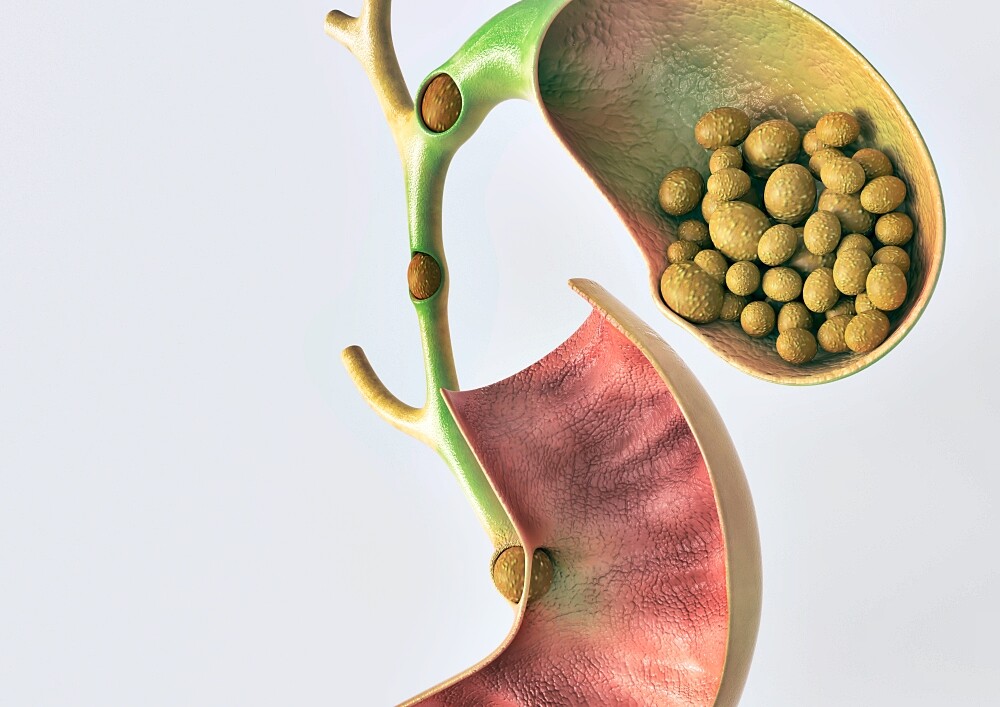The gallbladder is an organ that we humans can also do without due to complaints. You can find out here whether living without a gall bladder entails restrictions and what diet is important now.
Liver as a supplier of gallbladder
The gallbladder is located below the liver. The liver supplies the gallbladder with bile. Bile supports the digestion, especially of fats such as cholesterol and triglycerides.
The gallbladder itself mainly serves as a storage place, as it absorbs bile and only uses it for digestion when needed and, if necessary, releases it back to the duodenum.
The gall or gallbladder contains:
- Water
- Cholesterol
- Gall acid/Gall fluid
- Bilirubin
Problems with gallbladder
- If the gallbladder fluid clumps together, gallstones can form, which are deposited in the bile duct but also in the gallbladder. One cause can be high cholesterol levels. You can find out how to follow a low cholesterol diet here.
- If gallstones are present, little or no bile can be released into the intestines. As a result, sufferers suffer from pain in the body, mostly in the right abdominal area.
- In principle, gallstones can also disappear over time or be treated with medication (in the case of very small stones), but often the removal of the gallbladder is the last step.
Possible without problems?
Many people nowadays live without a gallbladder and their bodies do not cause them any discomfort in this respect. Your body can digest food without the organ. In addition, the surgical removal of the gallbladder is a routine procedure that you do not need to fear.
After the operation, it may take some time until the bile is completely sufficient for digestion again, as the previous storage of bile in the gallbladder no longer exists, but normally there should not be any major problems with food either.
2 tips for a diet immediately after removal
As just mentioned, there should be no major discomfort in digesting food immediately after the removal of the gallbladder. However, the tolerance of food varies fundamentally from person to person, so that a generally valid nutritional recommendation is hardly possible.
If you notice that your body is still struggling to digest food, especially heavy food, pay attention to the following tips in any case:
- Right food: There are foods that require your body to do a lot of work for digestion. This includes, for example, legumes or a lot of raw vegetables. Avoid these foods, especially immediately after the operation. In addition, you should avoid foods that are too high in fat and rather steam or cook your food.
- Do not eat large portions: To make digestion even easier, it makes sense if you limit yourself to smaller portions and eat more meals throughout the day.
This is the diet that matters
Even without a gallbladder you do not have to do without certain foods per se. A healthy, not too high-fat diet should still be a goal. As always, the amount makes the poison.
The following foods can help you digest without a gallbladder:
- Drinks: water and spritzers, tea
- Low-fat or reduced-fat dairy products
- Lean meat like turkey or chicken
- Lean fish
- Selected fruit varieties: apple, banana, pear, peach
- Light vegetables like zucchini or carrots
- Potatoes
- Whole grain products: Noodles, bread, cereal flakes

